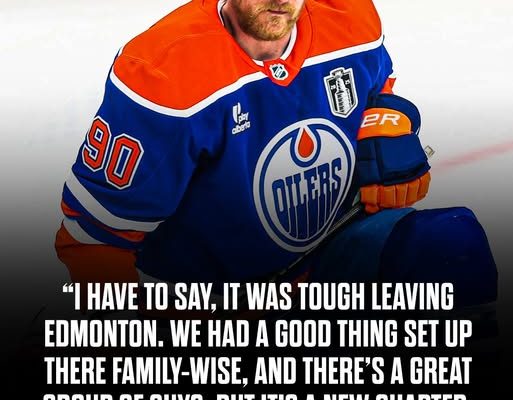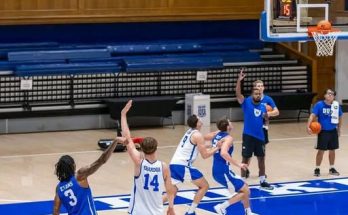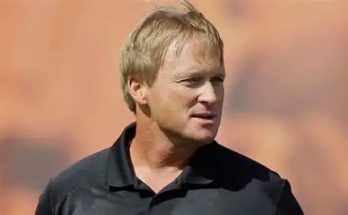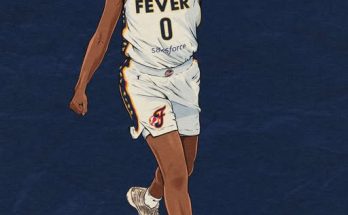Corey Perry’s hockey journey has never followed a straight line, and his latest decision adds another twist to a career defined by big moments, difficult choices, and unexpected turns. On Monday, Perry joined TSN 1050 in Toronto and opened up for the first time since news broke that he would be heading to Los Angeles to join the Kings. What might have appeared to be a sudden move on the surface actually came together in what Perry described as a surprisingly swift process—one driven largely by his long-standing relationship with former Edmonton Oilers General Manager Ken Holland, who now works in a senior advisory role with the Kings. For Perry, who turned 39 this year, the shift was anything but a simple business transaction. It was, as he described it, a “tough decision” that forced him to walk away from a promising and emotionally rewarding stint with a rising Oilers squad.
Perry’s brief but impactful tenure in Edmonton was marked by veteran leadership, clutch performances, and an undeniable chemistry with the team’s younger stars. Though he joined the Oilers midseason in 2024, following his abrupt departure from the Chicago Blackhawks due to an off-ice matter, Perry quickly proved why he remains one of the most respected figures in the NHL. His presence in the locker room was more than symbolic; it was stabilizing. He played smart minutes, chipped in with timely offense, and wasn’t afraid to mix things up when necessary. For a team with aspirations of going deep in the playoffs, his contributions were both tangible and intangible. The Oilers, a squad rich in talent but still searching for that extra edge, found in Perry the kind of battle-tested veteran who could guide them through rough patches and elevate their ceiling when it mattered most.
That’s why his departure hit differently. This wasn’t a declining player limping out of town. This was a capable and valued contributor who still had gas in the tank, choosing to leave a contending team where he was appreciated by teammates and fans alike. Perry admitted the emotional weight of that decision during his TSN appearance. “It wasn’t easy,” he said. “I loved the group there. The city treated me well. The fans embraced me. We had something special going, and I’ll always be grateful for that.”
Yet the call from Los Angeles—and specifically, from Ken Holland—changed everything. Holland, who had spent the previous five years as GM of the Oilers before stepping into an advisory role and eventually moving on, remains a deeply trusted figure in Perry’s professional orbit. Their relationship stretches back to their shared time in Edmonton and even earlier through numerous league dealings. When Holland picked up the phone, it wasn’t just another front-office guy making a pitch. It was someone Perry respects, someone whose hockey mind and loyalty he trusts. According to Perry, Holland laid out a clear vision for how the veteran forward could fit into the Kings’ plans—both on the ice and in the dressing room. The opportunity to play an integral role on a team eager to climb back into serious contention was one Perry found hard to ignore.
It also helped that the Kings are a team uniquely suited to his current strengths. They’re young, fast, and physical—but they lack the sort of grizzled postseason presence that someone like Perry can offer. The Kings are in the midst of transitioning from a rebuilding club to a legitimate playoff threat, and with new coaching leadership and roster reinforcements, there’s a clear opening for a player who has seen—and done—it all. In Perry, they gain not just a fourth-liner or power-play specialist, but a player who has appeared in multiple Stanley Cup Finals and worn every badge the NHL has to offer—good and bad. From winning the Cup in Anaheim in 2007 to losing heartbreakers with Dallas, Montreal, and Tampa Bay, Perry understands the psychological demands of playoff hockey. That kind of grit doesn’t appear on stat sheets but often makes the difference in seven-game wars of attrition.
What makes this move more fascinating is the context in which it’s happening. Perry isn’t the kind of player who jumps at every opportunity. Over the past few seasons, he’s been extremely selective about where he signs, often choosing teams with clear playoff potential and strong locker room dynamics. His late-career arc—from Dallas to Montreal to Tampa Bay to Chicago and then Edmonton—reveals a pattern of calculated bets. In each case, Perry took a chance on helping teams elevate their competitiveness, often exceeding expectations. While some would call him a hockey mercenary, bouncing from team to team in search of one last Cup, those who know Perry see it differently. They see a fierce competitor who wants to be where he’s most needed, who thrives in proving people wrong, and who feeds off the underdog narrative.
In Los Angeles, Perry has a chance to write yet another chapter in his story. The Kings, bolstered by young stars like Quinton Byfield and veterans like Drew Doughty and Anze Kopitar, are on the verge of something potentially great. Last season saw them make a spirited push before falling short, but with their core aging and new management pulling strings, the urgency is rising. Perry’s arrival adds another layer of fire to that mix. He won’t be asked to carry the team offensively—that’s not his job anymore—but he’ll be expected to set the tone. To throw the first hit. To chirp at the right moment. To drag the Kings into the dirty areas of the game where playoff series are won or lost.
He’s aware of that responsibility. During his TSN appearance, he made it clear that this wasn’t about comfort or weather or even lifestyle. “I want to win,” he said. “That’s all that matters at this point in my career. If I didn’t think this team had a chance to do something special, I wouldn’t be here.” That mindset is exactly what makes Perry such a polarizing yet essential figure in today’s NHL. He’s hated by opposing fans but revered by those who suit up beside him. He toes the line between agitator and leader, between scorer and enforcer. And in an increasingly analytics-driven league, Perry is a reminder that intangibles still matter.
For the Oilers, his departure leaves a gap that won’t be easy to fill. Not necessarily on the stat sheet, but in the culture. Perry had quickly become a locker room leader, especially among the younger forwards. His mentorship of players like Dylan Holloway and his rapport with Leon Draisaitl and Connor McDavid added layers of unity to a team that’s long struggled with chemistry issues. Though the Oilers have plenty of talent to absorb the loss, there’s no denying that losing a player of Perry’s pedigree stings, especially when that player still had plenty to offer.
Fans in Edmonton took the news with a mixture of gratitude and sadness. Social media lit up with messages thanking Perry for his contributions, some even calling for a future coaching or player development role with the organization once he retires. It’s a testament to how quickly he embedded himself into the heart of Oil Country. Even in a short stint, Perry left an imprint that went beyond numbers. He became part of the story.
As the 2025-26 NHL season approaches, Perry finds himself once again in a position few could have predicted even a year ago. Back in a Western Conference arms race, donning the black and silver of the Kings, surrounded by young energy and playoff aspirations, he stands ready to contribute in ways that only he can. If the last few years have proven anything, it’s that counting out Corey Perry is never a good idea. Whether it’s through a sneaky backdoor goal, a timely penalty kill, or a perfectly delivered speech in the locker room before Game 7, Perry has an uncanny knack for showing up when it counts most.
His relationship with Ken Holland may have opened the door, but it’s Perry’s own resume—lined with grit, heart, and a touch of controversy—that makes this move compelling. It’s a gamble for both him and the Kings, but it’s the kind of high-stakes wager that playoff dreams are built on. And for Perry, who’s spent his career skating headfirst into battles few others dare to fight, it’s just another chance to prove that he’s not done yet. Not even close.



